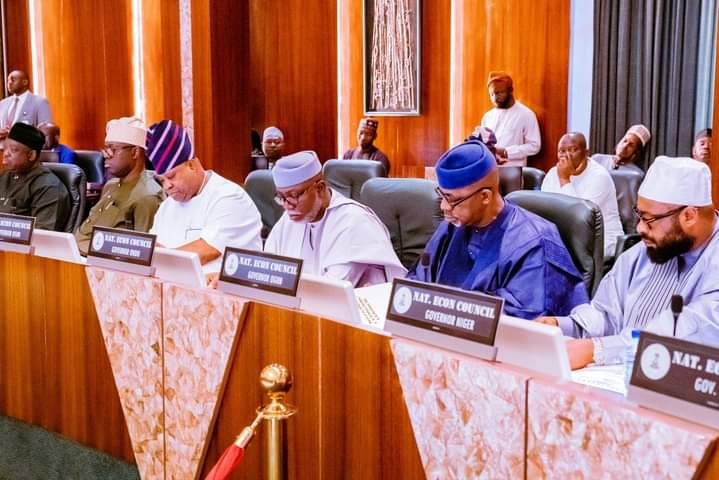The National Economic Council (NEC) gathered to make a significant decision. They approved the nomination of six state governors as board members of the Niger Delta Power Holding Company (NDPHC).

NDPHC Selection
These governors were chosen from each of the six geopolitical zones, representing the diverse regions of the nation.
Hope Uzodinma from Imo, Babagana Zulum from Borno, Dikko Radda from Katsina, Abiodun Oyebanji from Ekiti, Umo Eno from Akwa Ibom.
Also, AbdulRahman AbdulRazaq, the Kwara State Governor and Chairman of the Nigerian Governors’ Forum, were the chosen ones.
Their selection was a testament to their dedication and leadership.
Stanley Nkwocha, the Senior Special Assistant to The President on Media & Communications (Office of The Vice President), shared the news of their appointment late one Thursday evening.
He emphasized the critical role of the NDPHC in the nation’s economic growth and stability.
During the 142nd NEC meeting, the council also received important presentations and recommendations from various ad hoc committees.
These committees were tasked with addressing pressing issues such as Flood, Erosion, Drought.
And also, Desertification (Mitigation, Adaptation, Preparedness, and Response); Economic Affairs; and Crude Oil Theft Prevention and Control.
Approval Of Household Grant
In a separate announcement, President Bola Tinubu unveiled a National Construction and Household Support Programme.
This initiative aimed to provide support to 100,000 families in each state, offering ₦50,000 grants for three months.
The total disbursement for these grants amounted to ₦155 billion, aimed at supplying assorted foods and household necessities.
Also Read: Enough Is Enough: Nigerians Protest EFCC Brutality
Additionally, each of the 36 states and the Federal Capital Territory would receive ₦10 billion allocations for Compressed Natural Gas (CNG) buses.
The President’s plan to provide ₦50,000 to 3.7 million families across the nation, alongside the ₦10 billion allocation for CNG buses and the ₦155 billion for assorted foods, was a monumental endeavor, estimated to cost over ₦1 trillion.
This initiative promised to bring relief and support to countless families, fostering hope and stability across the land.
And so, with these significant steps, the nation moved forward, guided by the wisdom of its leaders and the strength of its people, toward a brighter and more prosperous future.

